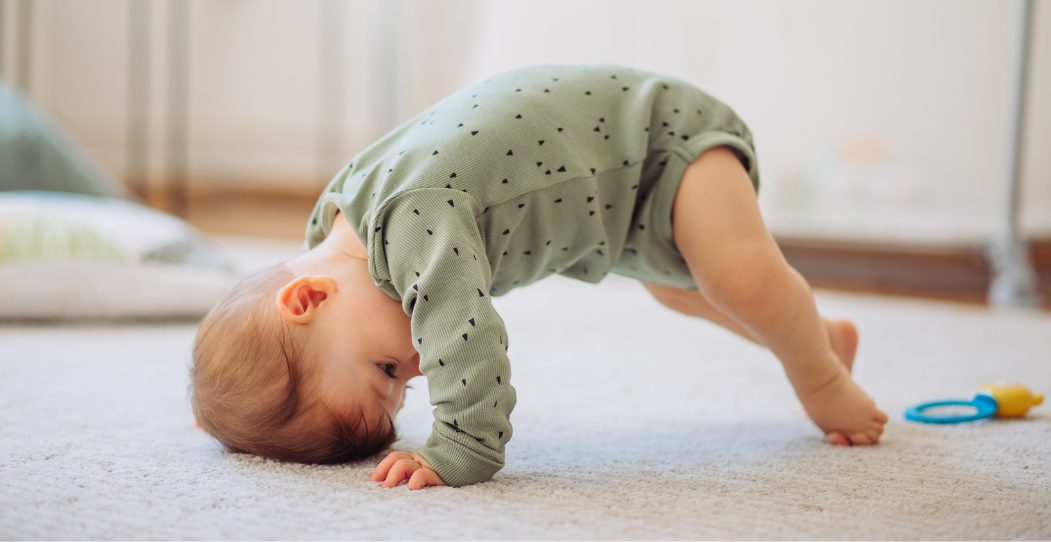8-9 Month Sleep Regression

By the time the 8-9 month sleep regression arrives, you've likely been through a few already. Sometimes parents don't realize that the sleep troubles their baby was experiencing a few months prior was actually a developmentally appropriate sleep regression and they just made it through the best way they know how. Often if that's the case, then this is the time when they are feeling exhausted, defeated, and it's time for me to step in and help!
A sleep regression between 8 and 9 months is perfectly normal, some families really start to feel the exhaustion at this stage, while others seem to fly right past it!
The first thing you need to know about this sleep regression, is that there can be many reasons why your baby is going through it. It's not a one-size fits all situation. At this age your baby is working hard to learn new exciting skills, which can play a role in sleep troubles. Some babies start developing separation anxiety, which can also play a big part in sleep troubles. Another reason your baby might be struggling with sleep at this age might also be because of the 3-2 nap transition. If your baby is still having 3 naps a day, it may be time to transition them to 2 naps a day to ensure they are not achieving too much daytime sleep. Too much daytime sleep can cause more frequent night wakings or resistance at bedtime at any age.
Here are a few signs that your child may be experiencing the 8-9 month sleep regression:
- Frequent night wakings
- Fighting bedtime
- Short naps
- More fussiness overall
Here are a few tips to help you and your baby get through the 8-9 month sleep regression more smoothly:
- Ensure your baby is following an age-appropriate routine
- Help your baby transition to 2 naps if they are still on a 3 nap schedule.
- Cap the daytime sleep at 3 hours to ensure they are not getting too much sleep during the day.
- Prioritize consistency within your bedtime and naptime routines.
A bonus tip!
If you find that your baby is struggling with separation anxiety at this age, being patient with them and providing them with extra snuggles when putting them to sleep is a really great way to help them work through it. Remember that separation anxiety is temporary and by nurturing them a little extra when they're struggling, over time they'll learn that you're always there for them and they'll be able to work through the anxiety a little easier.
Restful Baby Blog





